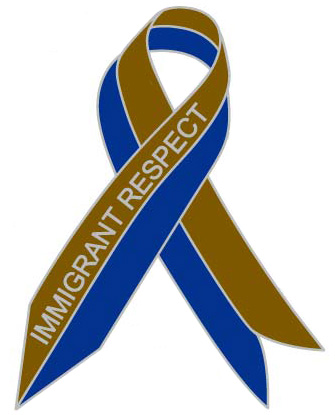Public meeting on the theme of the Refugees and Asylum Seekers in Campania
Centre for Postcolonial Studies in collaboration with the ‘International protection of migrants’ PhD program in African Studies
Location: Università L’Orientale, Naples, Italy
Project Description: Day of global action against racism, and for the rights of migrants and refugees
Public meeting on the theme of the refugees and asylum seekers in Campania
16 December 2011 H 15:00 – 17:00
Aula Matteo Ripa, Palazzo Giusso, Piazza San Giovanni Maggiore Pignatelli
In the occasion of the day of global action against racism (18 December 2011), the Center for Postcolonial Studies, in collaboration with the university course of ‘International protection of migrants’ and with the PhD program in African Studies, and together with the associations dealing on the territory with migration, exile, and the legal treatment of refugees, organizes a public meeting in order to discuss the condition of the asylum seekers in Campania.
The discussion, in particular, will debate the appeal of the asylum seekers, placed, at the moment, in abandoned hotel structures in Campania, to contribute to the request of a ‘sojourn permit for humanitarian motifs’ in favor of the refugees coming from Libya.
Programme
15- The film ‘Transit’ by Bani Khoshnoudi, Iranian multimedia artist
15.30- The refugees placed in abandoned hotel structures in Campania
16- Videos on the conditions of refugees and asylum seekers in Campania
16.30- Intervention of the lawyers on the territorial commission for the acknowledgement of international protection – Stella Arena, Eliana Nesta, Cristian Valle
16.45.
Discussion
Moderator: Jean Renè Bilongo – journalist
Representatives of associations Ciss Ong, Less Onlus, Garibaldi 101.
Migration office- House of work Naples CCIL
Silvana Carotenuto, Centro studi post-coloniali, Università L’Orientale
Cattedra di “Tutela internazionale dei migranti”
Lidia Curti, Insegnamento corsi d’italiano per stranieri all’Associazione Islamica – Napoli Maria Cristina Ercolessi, Dottorato in Africanistica, Università L’Orientale
Miguel Mellino, Antropologia post-coloniale, Università L’Orientale
Appeal of asylum seekers who live in Campania
Following the humanitarian emergency caused by the Libya war, on the 6 April of this year an agreement between commons, provinces, regions and the central government and Civil Protection was signed to coordinate the welcoming on the whole national territory of people escaping from the war. The agreement was finalized to welcome the seekers by placing them according to the regions’ ability to prove a just and proportional hospitality.
Campania gives hospitality to 2278 asylum seekers in hotel structures with a cost that ranges from 39 to 46 euro a day for each refugee. The hotels that have stipulated the agreement with Civil Protection and with the Region Campania are, without any doubt, functioning as C.A.R.A, and, even if they are unable to provide food and accommodation, they are all the same paid also for the assistance services (health, legal linguistic and cultural mediation, and formation) which, in fact, are not guaranteed, with dramatic consequences on the – already very precarious – lives of these thousands of women and men.
In the agreement signed on the 6 April, the role of Civil Protection is defined as “temporary and transitory in this emergency”, agreeing on the fact that the hospitality and assistance matter needs “the participation of the world of associations and of social cooperation, the Regional structures and the local offices which are responsible of the social services and the services provided to the person in general”. In Campania, in fact, the MP Cosenza declares that he has never organized a regional plan of welcoming and that, on the national level, this requires a necessary passage through the agreements and the protocols of agreement between the commons, the associations and the local offices. It becomes thus evident why the emergency situation cannot be normalized and that it carries on as an emergence.
The absence and hostility of institutional interlocutors, responsible for the emergency condition of difficulty and danger in which, after 8 months, 2278 people coming from Libya, still live, obliges us to break the silence.
On the 16 December, we invite the civil society, from the academia to the associations working on the territory, to a first moment of information, debate and reflection on these facts, aiming to create a coordination and a monitoring able to structure an alternative system of assistance, providing professionalism and knowledge in order tor restitute dignity and negated rights.
We wish a large coordination of existing forces could support political and institutional action of major resonance, obliging the responsible agents to a confrontation and a change of politics.
Back to D18 Documentation
